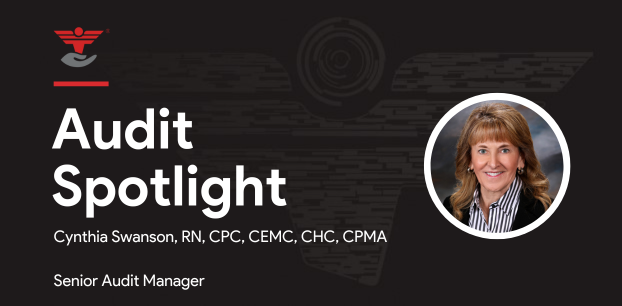
Egregious Charges, Price Transparency and Pricing Tools
In this month’s Audit Spotlight, we focus on a claim example where our audit team zoomed in closer on the billed services and related charges. We considered three questions:
- Is the hospital really charging this much for services performed in the emergency room?
- Is this an error in hospital billing?
- Are the hospital charges egregious for the services provided and billed?
Case Scenario
A 55-year-old female visited a Florida hospital’s emergency room with complaints of left ear and jaw pain. The hospital billed the following outpatient charges on a UB-04 claim form/electronic equivalent 837I:
- Pharmacy – $51.57
- Blood draw – $200.20
- Laboratory tests – $10,499.50
- CT maxillofacial without dye – $13,535.98
- Emergency department visit – $4,688.28
- Chest X-ray – $2,280.06
- IV push – $1,178.28
- EKG tracing – $1,544.00
TOTAL Charges – $33,977.87
ClaimDOC reference-based pricing (RBP) – $987.36 based on 2024 Medicare APC rate with markup.
The hospital’s total reported cost for all services – $581.53.
Plan Savings: $32,990.51
Percentage of Savings: 97%
Question: Why did the hospital markup and charge an egregious $33,977.81?
Answer: Because hospitals can and do charge any amount they want.
Price Transparency and Healthcare Pricing Tools
In January 2021, each hospital operating in the U.S. was required to provide clear, accessible pricing information (transparency) online regarding the items and services they provide to help consumers know the cost of a covered item or service before receiving care.
Historically, healthcare has been a service individuals purchase without knowing how much it is going to cost. With price transparency rules and a growing number of healthcare pricing tools/calculators now available, consumers can compare charges/costs by hospitals, urgent cares, doctors and more. These tools assist patients to better anticipate the cost of care, enables patients to review affordable options, budget for healthcare expenses and more.
A Florida Daily article published March 5, 2024, points out most Florida hospitals are not compliant; just 41% are fully complying with the price transparency rule. Nationally, only 689 of 2,000 hospitals (34.5%) fully complied with the rule, according to Patient Rights Advocate’s sixth Semi-Annual Hospital Price Transparency Report (examination of 2,000 hospitals).
While some progress has been made regarding compliance and price transparency, we still have a long way to go. With a new administration about to take place, there is more opportunity to continue to address this critical issue and a host of other healthcare matters in an overly complicated healthcare system.
The Takeaway
The concerns of egregious charges were observed on the above hospital health insurance claim. While hospitals can charge any amount they choose for items/services provided, egregious fees and billing errors can complicate matters for members to understand their bills and payments, impact the collection of patient balances, build a reputation of facilities charging high fees, create burdens for patients having no insurance, and a host of others.
Obtaining pricing estimates prior to needing or having related care to understand how much one is obligated to pay for their services can be beneficial to avoid surprise medical bills. Whenever an individual receives a bill and the cost for care seems inappropriate/questionable, an inquiry to the provider and/or health plan should be made to obtain an explanation of the services and corresponding charges. Hospitals need to do the right thing: comply with the federal price transparency laws and post their prices online so consumers have the necessary information.
Our goal at ClaimDOC is to use benchmark charges and costs nationally to negotiate fair and ethical payments. Employers turn to us to seek and establish fair reimbursement rates for their plans allowing them to save money and provide richer benefits to their employees. A win-win for everyone.
Background
ClaimDOC’s comprehensive line-by-line auditing of claims uncovers errors that basic claim repricing and auto-adjudication does not catch, leading to greater savings for health plans and its plan members. Our audit team analyzes all types of healthcare claims for a variety of potential concerns including excessive usual and customary charges, duplication of claims, correct coding edits, unbundling of services and many others. Our claims review is not intended to impact care decisions or medical practice.